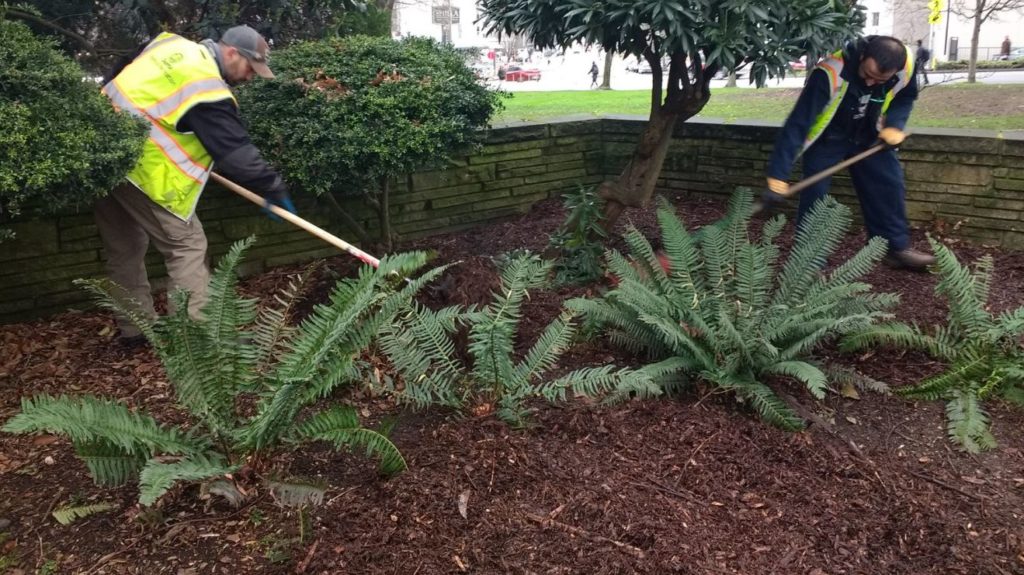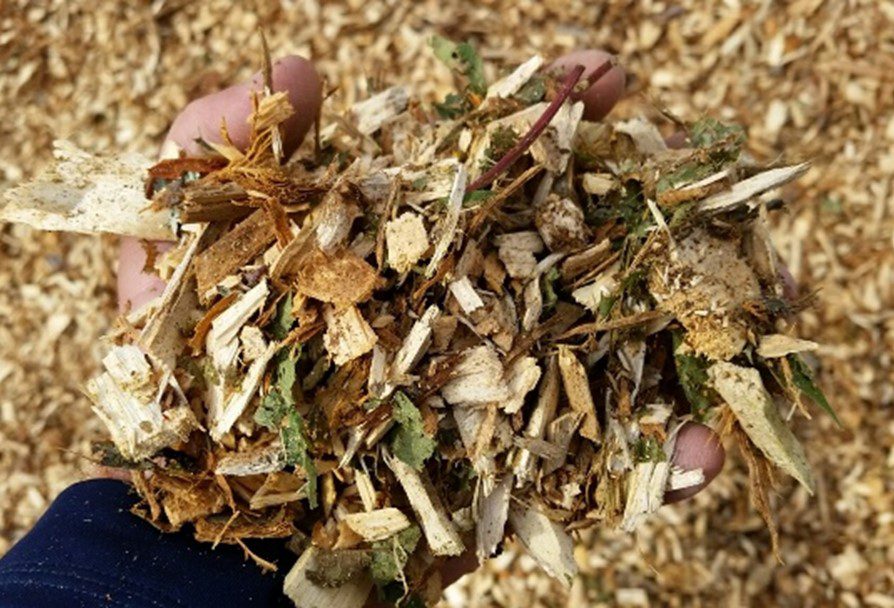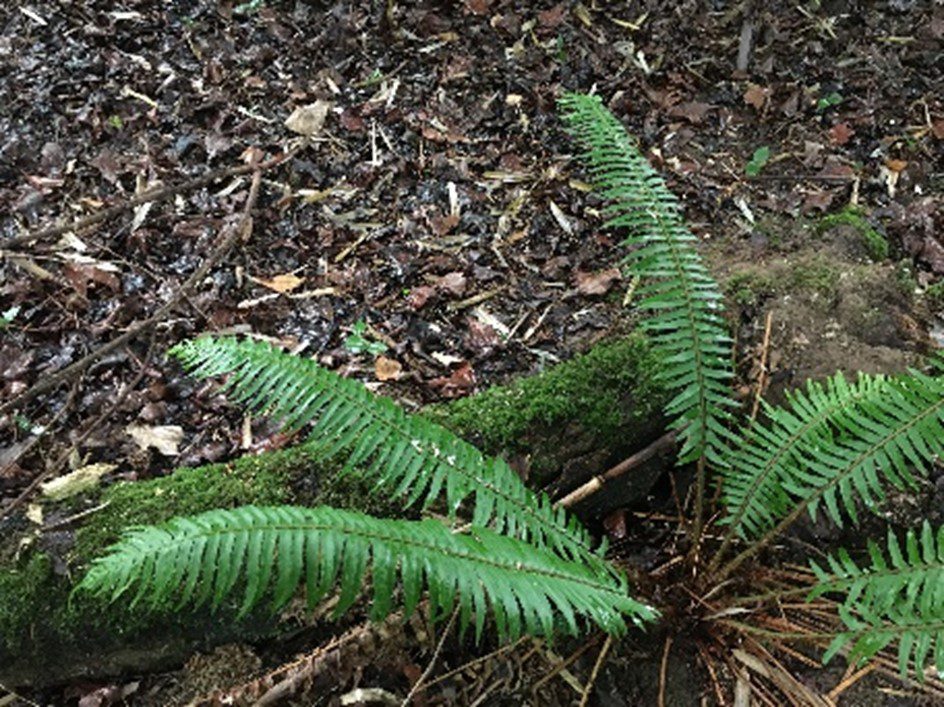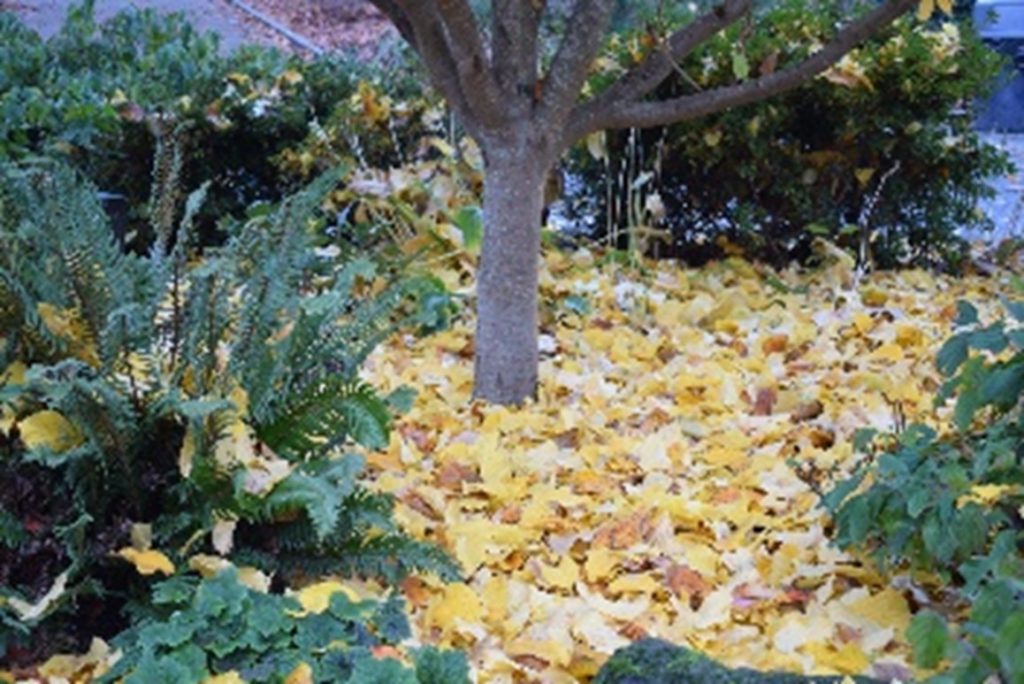
By Todd Burley and Craig Chatburn
The ground we all walk on is not just dirt, it is a complex network of relationships that is the foundation of our ecosystem. Soil is brimming with life, made up of a combination of organic and inorganic matter, fungi, insects, bacteria, and much more. It can provide all the nutrients plants need to live, absorbs carbon from the atmosphere, and absorbs and holds water like a sponge. This is why at Seattle Parks and Recreation we manage healthy soil as well as the plants and animals (including people) that live “overground.”
So how does SPR support healthy soil in our 6,414 acres of park land? The answer is simple and complex (much like soil itself!). We feed the soil what it needs naturally by keeping leaves, needles, and branches where they belong – on the ground, where possible. In an urban setting, we also sometimes need to add natural materials, too.
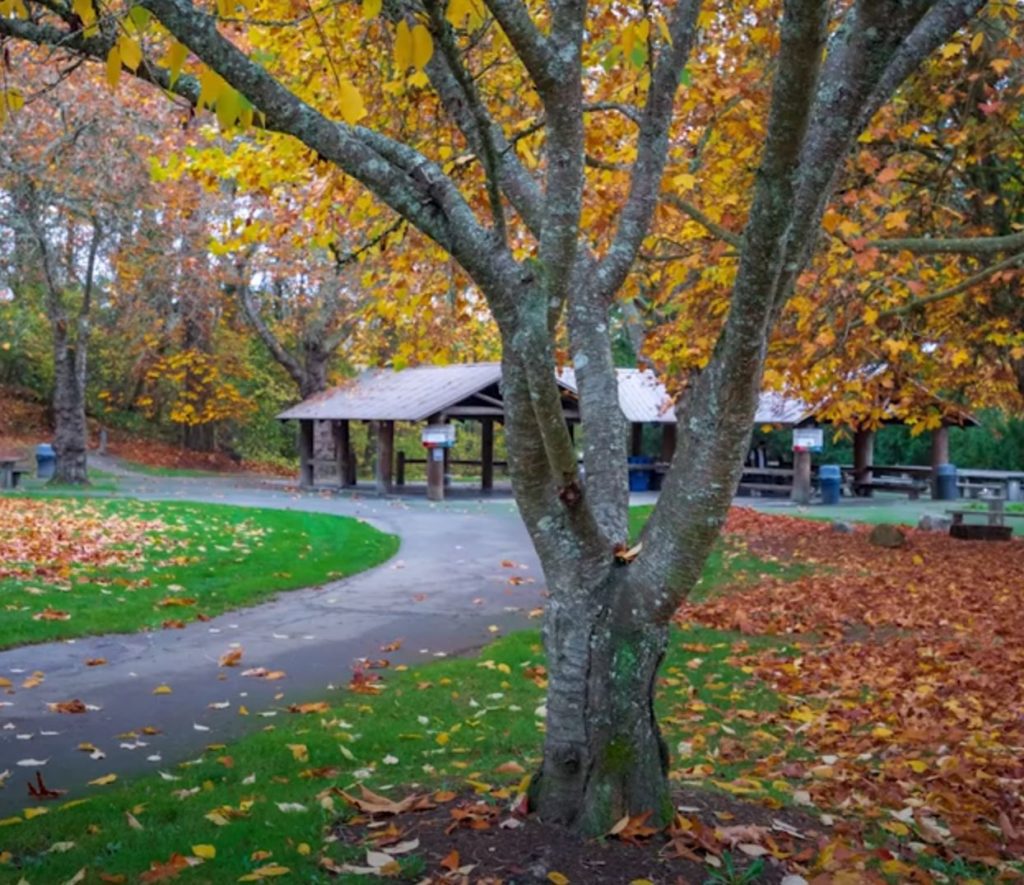
Watch our Leaving Leaves video to learn how we return nutrients to the ground as part of daily practice.
One of the best ways we can support building healthy soils is by adding mulch, or more specifically, arborist wood chips. SPR’s Tree Crews and Grounds Crews take tree-trimmed branches and other woody debris and chip them up to be returned to where they are needed. Wood chips are decomposed naturally by soil organisms in the “duff” of forests and garden beds, returning nutrients. Adding this organic matter to the soil also supports the decomposers, who breakdown mulch and make nutrients in mulch available to feed this ecosystem.
Mulch also acts like a sponge, holding Seattle’s iconic rain during most of the year. This stored water can then be accessed by plants during the summer drought months. Climate change is making annual replenishment of mulch a top priority, as we are already seeing longer, hotter, and drier summers as well as wetter winters with more intense storm events. Adding wood chips in parks helps us keep rainwater in the soil, reduces stormwater runoff to lessen flooding, and gives our plants a better chance at surviving a harsher climate.
Not only does arborist wood chip mulch help mitigate the impacts of climate change, but it also helps absorb and store carbon from the atmosphere, reducing our collective contribution to the amount of greenhouse gases in our air. It is estimated by some that more carbon is stored in soils than in forests. Mulch increases the organic material in soils (wood) and improves the living ecosystem underground, both which lead to sequestering and storing carbon underground.
Replenishing mulch in shrub beds and tree rings to a four-inch depth also adds a protective layer that insulates soil. This helps to protect roots from cold winter temperatures and more importantly protects the soil surface from the direct sunlight that reduces soil moisture through evaporation, often leading to stress from drought. So, the surface of the mulch is heated up but the soil below the mulch layer is shaded and kept cool and moist all summer.
And we almost forgot another great benefit of mulch – when spread at least three-inches deep, it naturally inhibits weeds, and is more effective at weed control than herbicides! Much mulch really does matter, in many marvelous ways.
A note on mulch: all are not created equal. Soil experts at SPR recommend the use of arborist wood chips over bark mulch to ensure the benefits of mulch are achieved. Bark, as the protective armor of the tree, is resistant to being broken down by most beneficial soil microbes, thus negating many of the benefits of using mulch.
So, resist the urge to groom your landscapes of much needed organic matter. Keep leaves, needles, and branches where they belong—on the ground everywhere possible. In more formal gardens, or areas where natural woody debris isn’t desired, it is important to feed the soil the highest quality mulch available – arborist woodchips.
Get started by using Chip Drop, a free service (with some caveats) that provides arborist wood chips from your community. Your garden beds will look great, and the ground beneath your feet will thank you, too.
